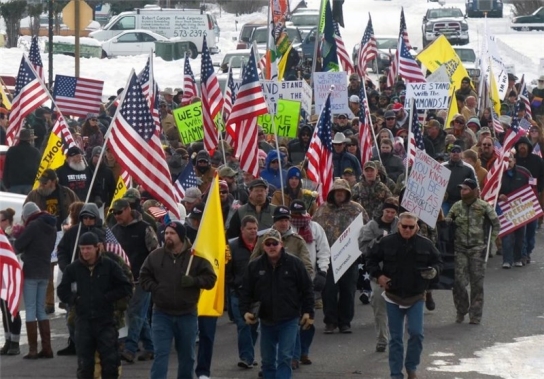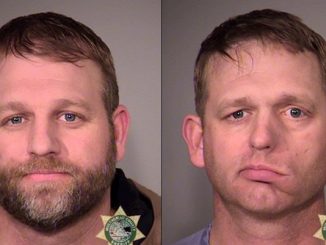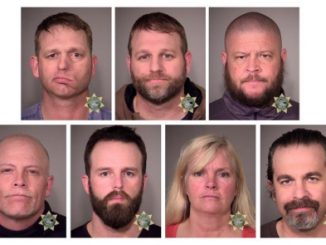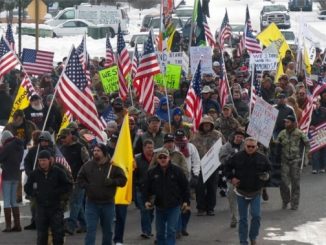
For the second time this year, the federal government tried and failed to convict four men who joined the high-profile Bundy family in its 2014 standoff with federal agents in a dispute over grazing fees for cattle. A Las Vegas jury acquitted two of the four men on trial, Ricky Lovelien and Steven Stewart, on all 10 charges against them.
The jury found the other two defendants, Scott Drexler and Eric Parker, not guilty on most charges, but it could not reach verdicts on four charges against Parker and two charges against Drexler. The government has not said whether it plans to retry them.
The verdicts were a remarkable setback for the government in its attempts to prosecute Cliven Bundy, his family and several of their supporters. The Bundys have become a powerful symbol of what some people on the right view as federal government overreach in controlling public lands.
In October, a jury acquitted Ammon Bundy and his followers who were embroiled in a 41-day armed standoff at the Malheur National Wildlife Refuge in Oregon.
The proceeding that ended Tuesday was retrial of a case that was originally tried in April but ended in a hung jury.
Each of the four defendants faced multiple felony charges including conspiracy to commit an offense against the United States, weapon possession, assault and threatening federal officers stemming from the 2014 standoff near the Bundy ranch in Bunkerville, Nev.
Guilty verdicts could have resulted in decades-long prison sentences. After 20 days of testimony, the jury deliberated for four days before reaching its verdicts.
A detention hearing for Parker and Drexler is scheduled for Wednesday. Both men in the meantime have been transferred to a halfway house until the hearing.
Drexler’s lawyer, Todd Leventhal, said his client was happy with Tuesday’s news and hopes to move back to Idaho to live with relatives.
“We weren’t allowed to bring in any witnesses during the trial,” Leventhal said on Tuesday. “Now we have to wait and see what the government will do and if they plan to retry my client.”
The trial brought Bundy supporters to the courthouse and sometimes to Las Vegas Boulevard with flags and signs.
The issue of federal control of public lands is especially potent in the West, where states like Nevada, Utah and Wyoming have large chunks of their land owned by the federal government. Legislatures in those states have long sought to expel the federal government from those areas – including national monuments and parks – and turn them over for local control.
In 11 contiguous Western states, 46.3% of the land is owned by the federal government. That figure is nearly 85% in Nevada.
The decades-long legal dispute between Cliven Bundy and the government escalated in 2014 when federal agents came to round up his cattle after he refused to renew permits that would have allowed his cattle graze on public lands near his ranch. The government said Bundy had racked up $1 million in grazing fees that he refused to pay to the Bureau of Land Management for at least two decades.
Dozens of men from neighboring states, many of whom were armed, descended on Bunkerville and set up military-style camps to stop the government.
Concerned with the possibility of violence, the standoff ended peacefully when officials gave in and left the cattle to graze.
The case became known as the Bundy Ranch standoff.
Bundy and his supporters are expected to go to trial this year over the 2014 confrontation.
The first round of trials began earlier this year, but the government managed to obtain convictions only against Gregory Burleson of Phoenix and Todd Engel of Boundary County, Idaho. Both were found guilty of obstruction of justice and interstate travel to aid extortion.
By: Melissa Etehad and David Montero
Source: latimes.com





Be the first to comment